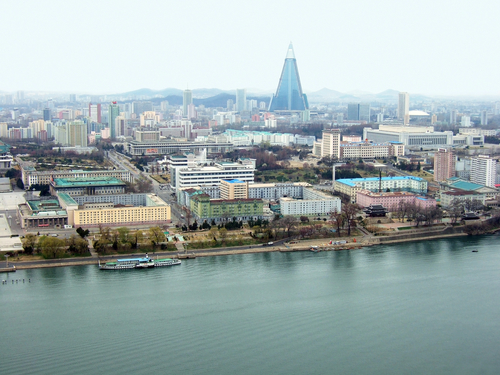Does the UN Need a New Approach Toward North Korea?

Please note that we are not authorised to provide any investment advice. The content on this page is for information purposes only.
The UN needs a new strategy to address human rights violations in North Korea: a strategy that goes beyond a simplistic dichotomy of good versus bad and right versus wrong.
The UN needs a new strategy to address human rights violations in North Korea: a strategy that goes beyond a simplistic dichotomy of good versus bad and right versus wrong.
On 22 December 2014, the UN Security Council addressed human rights in North Korea for the first time. This came in response to a report and a subsequent UN General Assembly Resolution recommending the Security Council refer ‘unnamed North Korean officials to the International Criminal Court for committing crimes against humanity’. China objected to placing human rights in North Korea on the agenda for ongoing debate in the Security Council and another country with veto power, Russia, concurred with China’s position. While addressing North Korea’s human rights problem in the Security Council is a significant achievement, the event also demonstrated the limitations of the UN’s approach.
The UN Security Council’s recognition of human rights violations in North Korea was overshadowed by another North Korea-related affair — North Korea’s alleged hacking of Sony Pictures Entertainment in response to the impending release of the movie The Interview. The film arguably adds to the West’s culture of demonising North Korea, as well as to North Korea’s perception of a growing threat from the West. One film critic commented that the film handles North Korea as a mere object of ridicule. The Interview represents, and reinforces, a larger problem in the West’s general attitude towards North Korea.
The UN Security Council’s actions on North Korea are also limited by the tendency to concentrate on ‘breaking the silence’, rather than fully addressing the problem. The United Nations should critically self-examine whether actions intended to promote justice and human rights actually achieve this. Two points should be addressed here.
First, there is a need to cautiously examine whether UN actions are merely an exercise in being seen to do something — an attempt, that is, to avoid the guilt of being a bystander. If so, its actions will simply reinforce self-imposed views and do very little to improve the welfare of the very people they aim to help.
For example, there is a danger that ‘speaking out’ may inadvertently preclude other more effective actions. After the UN General Assembly overwhelmingly voted to refer North Korean human rights violations to the Security Council, North Korean officials withdrew with UN bodies, including a possible country visit for UN human rights investigators.
Second, there is a need to be conscious of how the international community is tacitly complicit in human rights abuses. The binary between good and bad, perpetrators and victims, and democracy and totalitarianism fails to effectively address how memories of hostilities and ongoing enmities contribute to the very human rights problems the international community is attempting to tackle. The prevailing focus on breaking the silence has a limited practical effect and does not address this shared guilt.
The Korean War, in which the United Nations participated, influenced the shaping of the North Korean political system and compounded human rights problems, as outlined in the UN Commission of Inquiry report.
The Commission of Inquiry report recommends that ‘the United Nations and the States that were parties to the Korean War’ work towards a peaceful settlement of the Korean War, and foster dialogue and civilian exchanges with North Korea. Unfortunately, the UN and the states concerned have so far failed to do this.
It is imperative that the international community avoids letting popular images of North Korea as only an absurd, brutal and repressive place, which limit international actions on human rights violations. A new framework is needed to adequately address the complexities in human rights debates.
Time to move away from simplistic thinking on North Korea is republished with permission from East Asia Forum




